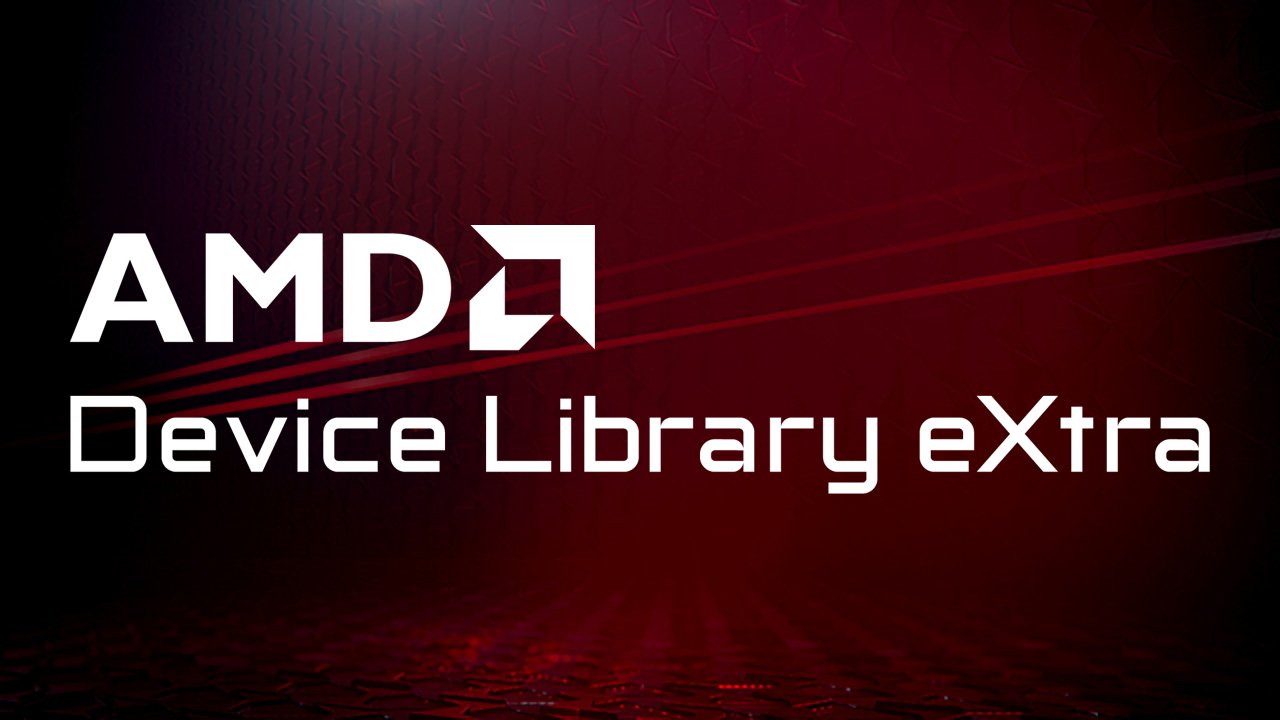ADLXJavaBind
Demonstrates how to wrap ADLX with SWIG when programming with ADLX.
Sample Path
/Samples/java/ADLXJavaBind
Code
//
// Copyright (c) 2021 - 2025 Advanced Micro Devices, Inc. All rights reserved.
//
//-------------------------------------------------------------------------------------------------
%module(directors="1") ADLX
%{
#include <Windows.h>
#include "../../../../SDK/Include/ADLXDefines.h"
#include "../../../../SDK/Include/ICollections.h"
#include "../../../../SDK/Include/IDisplays.h"
#include "../../../../SDK/Include/ISystem.h"
#include "../../../../SDK/Include/ILog.h"
#include "../../../../SDK/ADLXHelper/Windows/Cpp/ADLXHelper.h"
typedef int64_t adlx_int64;
typedef int32_t adlx_int32;
typedef int16_t adlx_int16;
typedef int8_t adlx_int8;
typedef uint64_t adlx_uint64;
typedef uint32_t adlx_uint32;
typedef uint16_t adlx_uint16;
typedef uint8_t adlx_uint8;
typedef size_t adlx_size;
typedef void* adlx_handle;
typedef double adlx_double;
typedef float adlx_float;
typedef void adlx_void;
typedef long adlx_long;
typedef adlx_int32 adlx_int;
typedef unsigned long adlx_ulong;
typedef adlx_uint32 adlx_uint;
typedef bool adlx_bool;
typedef wchar_t WCHAR; // wc, 16-bit UNICODE character
typedef WCHAR TCHAR;
// Microsoft
#define ADLX_CORE_LINK __declspec(dllexport)
#define ADLX_STD_CALL __stdcall
#define ADLX_CDECL_CALL __cdecl
#define ADLX_FAST_CALL __fastcall
#define ADLX_INLINE __inline
#define ADLX_FORCEINLINE __forceinline
#define ADLX_NO_VTABLE __declspec(novtable)
//IID's
#define ADLX_DECLARE_IID(X) static ADLX_INLINE const wchar_t* IID() { return X; }
#define ADLX_IS_IID(X, Y) (!wcscmp (X, Y))
#define ADLX_DECLARE_ITEM_IID(X) static ADLX_INLINE const wchar_t* ITEM_IID() { return X; }
using namespace adlx;
%}
/* Force the generated Java code to use the C enum values rather than making a JNI call */
//%include "java.swg"
//%javaconst(1);
typedef int64_t adlx_int64;
typedef int32_t adlx_int32;
typedef int16_t adlx_int16;
typedef int8_t adlx_int8;
typedef uint64_t adlx_uint64;
typedef uint32_t adlx_uint32;
typedef uint16_t adlx_uint16;
typedef uint8_t adlx_uint8;
typedef size_t adlx_size;
typedef void* adlx_handle;
typedef double adlx_double;
typedef float adlx_float;
typedef void adlx_void;
typedef long adlx_long;
typedef adlx_int32 adlx_int;
typedef unsigned long adlx_ulong;
typedef adlx_uint32 adlx_uint;
typedef bool adlx_bool;
typedef wchar_t WCHAR; // wc, 16-bit UNICODE character
typedef WCHAR TCHAR;
// Microsoft
#define ADLX_CORE_LINK __declspec(dllexport)
#define ADLX_STD_CALL __stdcall
#define ADLX_CDECL_CALL __cdecl
#define ADLX_FAST_CALL __fastcall
#define ADLX_INLINE __inline
#define ADLX_FORCEINLINE __forceinline
#define ADLX_NO_VTABLE __declspec(novtable)
//IID's
#define ADLX_DECLARE_IID(X) static ADLX_INLINE const wchar_t* IID() { return X; }
#define ADLX_IS_IID(X, Y) (!wcscmp (X, Y))
#define ADLX_DECLARE_ITEM_IID(X) static ADLX_INLINE const wchar_t* ITEM_IID() { return X; }
/* Callback to turn on director wrapping */
%feature("director") IADLXDisplayListChangedListener;
%include stdint.i
%include carrays.i
%include windows.i
%include typemaps.i
%include "../../../../SDK/Include/ADLXDefines.h"
%include "../../../../SDK/Include/ICollections.h"
%include "../../../../SDK/Include/IDisplays.h"
%include "../../../../SDK/Include/ISystem.h"
%include "../../../../SDK/Include/ILog.h"
%include "../../../../SDK/ADLXHelper/Windows/Cpp/ADLXHelper.h"
using namespace adlx;
// T* pointer
%include cpointer.i
%pointer_functions(adlx_int, intP);
%pointer_functions(double, doubleP);
%pointer_functions(adlx_uint, uintP);
%pointer_functions(ADLX_DISPLAY_TYPE, displayTypeP);
%pointer_functions(ADLX_DISPLAY_CONNECTOR_TYPE, disConnectTypeP);
%pointer_functions(ADLX_DISPLAY_SCAN_TYPE, disScanTypeP);
%pointer_functions(adlx_size, adlx_sizeP)
// T** ppointer
%define %ppointer_functions(TYPE,NAME)
%{
static TYPE *new_##NAME() { %}
%{ return new TYPE(); %}
%{}
static TYPE *copy_##NAME(TYPE value) { %}
%{ return new TYPE(value); %}
%{}
static void delete_##NAME(TYPE *obj) { %}
%{ if (*obj) delete *obj; %}
%{}
static void NAME ##_assign(TYPE *obj, TYPE value) {
*obj = value;
}
static TYPE NAME ##_value(TYPE *obj) {
return *obj;
}
%}
TYPE *new_##NAME();
TYPE *copy_##NAME(TYPE value);
void delete_##NAME(TYPE *obj);
void NAME##_assign(TYPE *obj, TYPE value);
TYPE NAME##_value(TYPE *obj);
%enddef
%define %pointer_cast(TYPE1,TYPE2,NAME)
%inline %{
TYPE2 NAME(TYPE1 x) {
return (TYPE2) x;
}
%}
%enddef
%ppointer_functions(IADLXDisplayServices*, displaySerP_Ptr);
%ppointer_functions(IADLXDisplayList*, displayListP_Ptr);
%ppointer_functions(IADLXDisplay*, displayP_Ptr);
%ppointer_functions(IADLXDisplayChangedHandling*, displayChangeHandlP_Ptr);
%ppointer_functions(char*, charP_Ptr);













